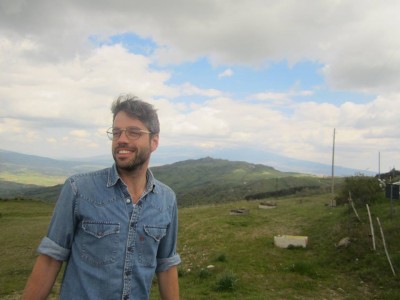Director of Strategic Initiatives and Outreach at Open North
 |
After graduating from Bachelor of Humanities in 2001, I completed a Masters in Philosophy at Trinity College Dublin (2002). I then pursued a career in international and local democracy development.
Over the last 12 years, I have helped strengthen electoral processes, legislative and political institutions with the National Democratic Institute (NDI) and the United Nations (UN) in Croatia, Serbia, Russia, Afghanistan, the West Bank, Kenya, Algeria, and Tunisia.
I established myself in Montreal six years ago and focused on building and expanding the open data movement in Canada as co-founder of Montréal Ouvert, a citizens initiative that advocates for government transparency.
I also joined the City of Montreal’s Task Force on Democracy and became a board member at the Center for Community Organisations (COCo), a non-profit network committed to social-justice and healthy organisations through training.
Every so often, someone asks me about my background and my studies, wanting to know how I prepared myself for my international career in democracy development and civic activism. When I say that I studied humanities and philosophy, I often encounter surprise or bemusement. But it makes perfect sense.
My degree at the College of the Humanities provided me with a deep comparative understanding of the history of ideas. This sense of perspective is invaluable in situations where my own identity and belonging to a given set of values was challenged. I can’t think of one country where I have worked where someone hasn’t tried to convince me that my person and the values that I embody had no place in the local context. This has been especialy true in the wave of conflicts and intolerance that followed 9/11. It is easy to cower behind relativism in those uncomfortable moments.
My humanities degree, through rigorous analysis of primary sources and debate, trained me to listen and engage in meaningful dialogue. The format and size of core seminar courses at the College were perfectly suited to deliberate with colleagues, many of whom are still my friends, with illustrious careers of their own.
Values and norms are shaped by history, by the rise and fall of civilizations. It’s important to be able to reflect on the political and social role of religion, the complex tension between reason and faith, or the well-being of the community and that of the citizens who make it up. Knowing the evolution of your own belief system demonstrates self-respect and helped me stand on firm intellectual ground when appreciating the traditions of those that I encountered.
This was true in Afghanistan when I worked with the UN on the first parliamentary elections, in Russia when I trained political dissidents on grass-roots organising, or Tunisia where I advised the legislative assembly to help it organise public consultations on the country’s new constitution. I have had the privilege to play an active role in building representative and participatory political institutions at the nascent and historical stages of democracy.
My humanities degree taught me to work methodically from principles. I have seldom met someone who didn’t aspire to a life of dignity, happiness, justice, and freedom, all ideas that were contemplated and explored at the College of the Humanities. This was certainly the case when I worked in Ramallah with Palestinian advocacy groups or in Serbia with election monitoring groups, wary of a backsliding to the days of the Milosevic regime. I’ve been inspired by the struggle of my colleagues and friends of all political stripes from around the world who fight for their ideals and for their vision of their future.
There is no single perfect model of democracy, of course, and all forms of government have their problems. It can be easy to forget the significance of pluralism or take for granted the competition of ideas at the core of western democracy. But what I appreciated the most about my education was a constant call always to question boldly the text we read, just as we were inspired by them.
—Jean Noé Landry (B.Hum. 2001)
Jean-Noé Landry is Director of Strategic Initiatives and Outreach at Open North, a non-profit organization that creates online tools to educate and empower citizens to participate actively in democracy.